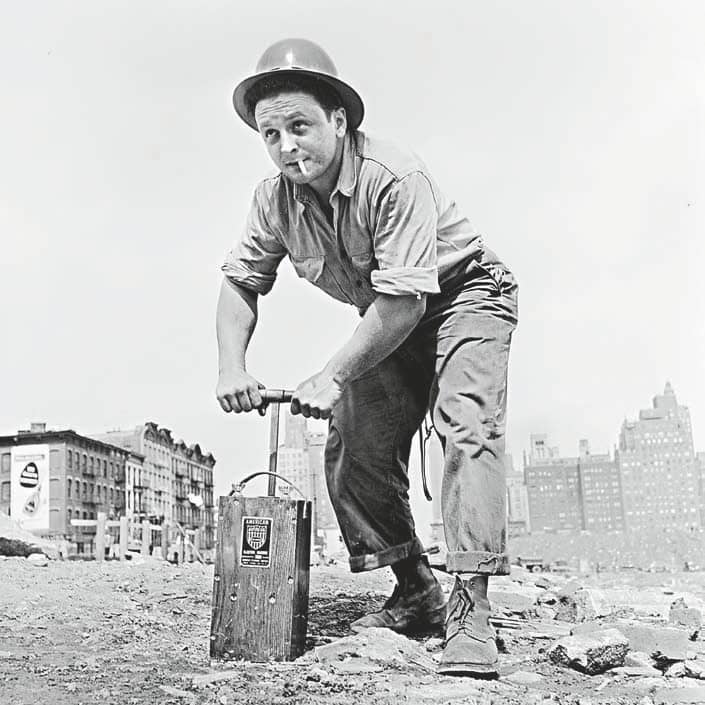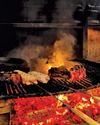
DURING WORLD WAR II, a coterie of American men, secure in the righteousness of their cause, the necessity of their means, and the efficacy of their tactics, methodically destroyed Germany’s cities. A decade later, some of the same men, still just as confident of their purpose and certain of their methods, demolished their own cities, too. They used bulldozers instead of bombs and promised prosperity instead of victory, but the effect was the same: a landscape of empty lots and traumatized people.
The goal, in America, was a mix of righteousness and prejudice: to uplift the poor, eliminate the unsanitary, stimulate commerce, and bring order to the messiness of urban life. In the period’s ideological framework, this required radical strokes rather than patience, sensitivity, and grassroots labor. If that meant that immigrants and people of color would absorb most of the shock, well, the bureaucrats could live with that. In Germany, the same U.S. government that had ordered the obliteration also helped pay for the reconstruction. In this country, the market was supposed to take care of rebuilding; often, it never showed up. Today, when a few American cities are getting loved to death and converted into luxury enclaves, many more still struggle with emptiness. Blocks that were once crammed with brick houses and that thrummed with bakeries, taverns, tailors, butchers, and general stores now contain a drive-through ATM and a parking lot.
This story is from the January 6–19, 2020 edition of New York magazine.
Start your 7-day Magzter GOLD free trial to access thousands of curated premium stories, and 9,000+ magazines and newspapers.
Already a subscriber ? Sign In
This story is from the January 6–19, 2020 edition of New York magazine.
Start your 7-day Magzter GOLD free trial to access thousands of curated premium stories, and 9,000+ magazines and newspapers.
Already a subscriber? Sign In

LIFE AS A MILLENNIAL STAGE MOM
A journey into the CUTTHROAT and ADORABLE world of professional CHILD ACTORS.

THE NEXT DRUG EPIDEMIC IS BLUE RASPBERRY FLAVORED
When the Amor brothers started selling tanks of flavored nitrous oxide at their chain of head shops, they didn't realize their brand would become synonymous with the country's burgeoning addiction to gas.

Two Texans in Williamsburg
David Nuss and Sarah Martin-Nuss tried to decorate their house on their own— until they realized they needed help: Like, how do we not just go to Pottery Barn?”

ADRIEN BRODY FOUND THE PART
The Brutalist is the best, most personal work he's done since The Pianist.

Art, Basil
Manuela is a farm-to-table gallery for hungry collectors.

'Sometimes a Single Word Is Enough to Open a Door'
How George C. Wolfein collaboration with Audra McDonald-subtly, indelibly reimagined musical theater's most domineering stage mother.

Rolling the Dice on Bird Flu
Denial, resilience, déjà vu.

The Most Dangerous Game
Fifty years on, Dungeons & Dragons has only grown more popular. But it continues to be misunderstood.

88 MINUTES WITH...Andy Kim
The new senator from New Jersey has vowed to shake up the political Establishment, a difficult task in Trump's Washington.

Apex Stomps In
The $44.6 million mega-Stegosaurus goes on view (for a while) at the American Museum of Natural History.